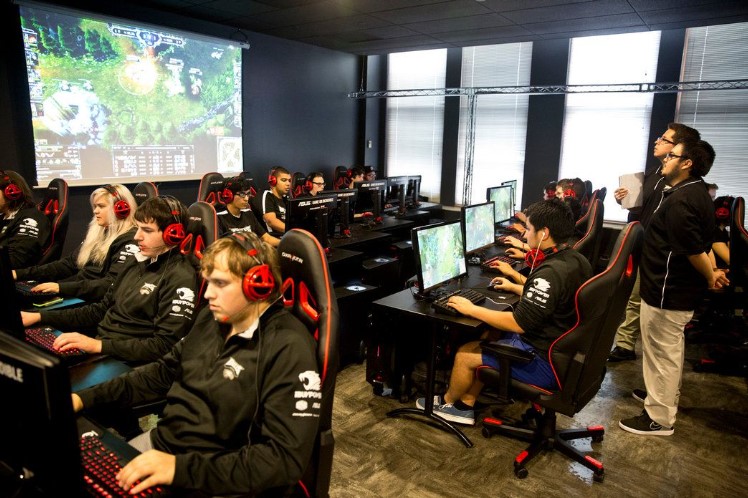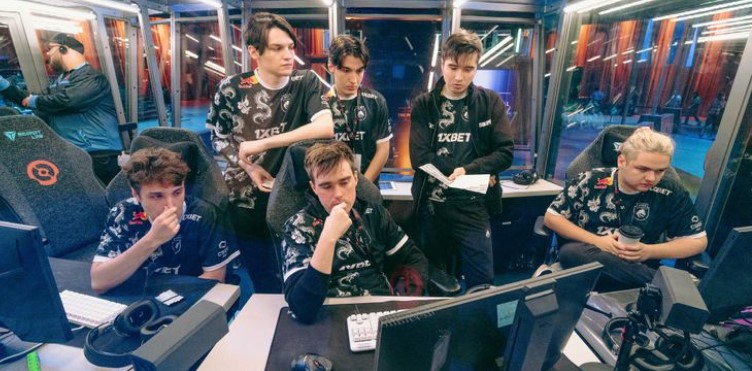Esports analysts are the unsung heroes who remain in the shadows, yet their impact on the game is immense. Without them, teams would lose their tactical advantage, struggle to adapt to new patches, and fail to effectively counter their opponents’ strategies. Much like coaches in traditional sports, analysts spend countless hours studying matches, devising counter picks, and developing new tactics. Their work goes beyond just collecting statistics — it’s full-scale strategic planning.
Tactical analysis before tournaments

When a team prepares for a major competition, it’s crucial to consider not only their own gameplay but also the style of their future opponents. Simply knowing the meta is not enough — teams need to understand what strategies other teams use, how they play at different stages of the match, and what weaknesses can be exploited. In esports, just like in traditional sports, tactical preparation can be the key factor in achieving success.
Analysts meticulously review the latest games of their opponents, identifying patterns in their actions and preparing counter-strategies. For example, before a Dota 2 tournament, they analyse hero pick frequency, evaluate timings for key item purchases, and study team synergy effectiveness. This allows them not only to predict their opponents’ playstyle but also to find ways to neutralize their strengths. Additionally, analysts track the individual performance of each player, identifying their preferred strategies and weaknesses that can be exploited during the match.
However, the work of analysts is not limited to breaking down enemy teams. They collaborate closely with coaches, helping the team adapt to the current meta and develop new tactics. For instance, if an opponent relies on fast, aggressive strategies, analysts may suggest a counter-approach that slows down the pace of the game, forcing the opponent into an unfavourable situation.
Proper preparation gives teams a significant edge. Those who don’t just follow the meta trends, but thoroughly study their opponents and come up with creative solutions, often find more success. This is why analysts have become an essential part of esports teams, helping them not only adapt but also dictate the pace of tournaments.
Match review and error correction
A good analyst not only studies opponents but also closely monitors their own team’s gameplay. Their job is to identify mistakes, help the team adapt, and refine their strategies. After each match, the analyst breaks down key moments, examines the reasons behind losses or struggles, and then suggests the best ways to fix these issues. This process is similar to traditional sports coaching, where coaches evaluate team performances after every game and adjust their tactics based on weaknesses.
Analysts play a crucial role in major tournaments, where adapting to opponents and making quick strategic adjustments can be the deciding factor. For example, at ESL One Raleigh 2025, teams with experienced analysts will be able to react faster to unexpected enemy picks and adjust their playstyle during the tournament. In a high-stakes competitive environment, even small adjustments in drafting, tactics, or positioning can make a huge difference. Analysts quickly pinpoint weaknesses in a team’s performance and suggest solutions that can turn the tide of a match.
For instance, if a team consistently loses its advantage in the late game, an analyst might identify issues with timing key item purchases, resource distribution, or decision-making in team fights. By analysing data, they can not only determine where control is lost but also propose specific strategic changes — adopting a more aggressive playstyle, adjusting item build orders, or reworking team coordination. Ultimately, the work of analysts allows teams to improve and become stronger with each match.
Patch management and adaptation
Every game update is a new challenge for both players and analysts. Balance changes, hero mechanics adjustments, and meta shifts can render yesterday’s strategies obsolete overnight. In such conditions, it’s crucial not just to follow trends, but to discover effective strategies ahead of others. Teams with strong analytical departments adapt to patches faster, test new ideas, and gain an advantage over opponents who struggle to keep up.
Experienced analysts meticulously study every change, assess its impact on gameplay, and predict which heroes or strategies might rise to the top. For example, after major patches in Dota 2, certain overpowered heroes often emerge. If an analyst identifies these trends first, the team can capitalise on them before others do. This gives them an edge not only in drafting but also in overall game understanding. Some teams leverage strategic patch analysis to develop unexpected tactics, which prove so effective that other teams are forced to adapt to their playstyle.
Moreover, analysts help players adjust to new mechanics, breaking down the best ways to take advantage of changes. For instance, if a patch buffs specific items or alters the game’s economy, it’s crucial to understand how this will affect macro play and laning. Those who ignore patch adaptation risk falling behind, which in modern esports can be disastrous. Falling behind even for one tournament cycle can significantly impact a team’s results, while those who adapt quickly gain an extra competitive edge.
Why analysts are an irreplaceable part of the team

Analysts are the bridge between strategy and execution. Their work stays behind the scenes, yet they play a crucial role in helping teams identify opponents’ weaknesses, adapt to patches, and analyse their own mistakes. They study statistics, develop tactics, and provide detailed reports to coaches and players, enabling them to build effective tournament strategies.
Without proper analysis, even the most talented players risk stagnation, repeating the same mistakes over and over. For example, a team might consistently struggle in certain game phases, but without understanding why, it would be difficult to fix the issue. Analysts help uncover these problems and suggest solutions — whether it’s adjusting strategy, modifying drafts, or tweaking macro play.
In modern esports, success isn’t just about mechanical skill — it’s about preparation. Teams with strong analysts adapt faster to meta changes, discover unconventional strategies, and make better use of data-driven insights. This is why analysts have become an essential part of every top-performing team — in a highly competitive environment, survival without them is nearly impossible.
Conclusion
In modern esports, simply playing well is not enough — you need to analyse, adapt, and anticipate your opponent’s moves. This is exactly what analysts do, working behind the scenes to create the foundation for victory. Their contributions to strategy development, mistake analysis, and patch adaptation make them an indispensable part of any successful team.
Esports is not just about mechanical skill — it’s also about intelligence. Teams that recognise the importance of analytics gain a significant edge and increase their chances of winning.

